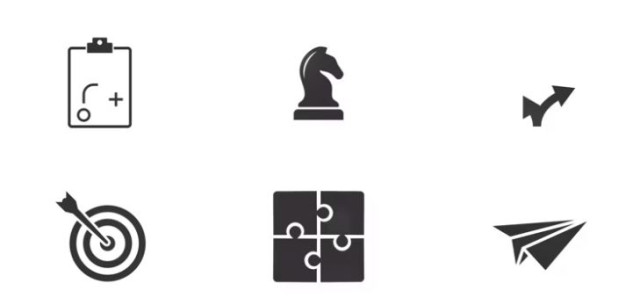

Mai ElFouly | AI & Quantum Intelligence Futurist | Strategic Advisor | Whole-Human Leadership & Innovation
I am a Futuristic Polymath pioneering AI, Quantum Intelligence & Human-Centered Innovation—empowering visionaries to navigate complexity, expand influence, and drive intelligent transformation.
With 22+ years of expertise in AI-driven strategy, human potential, and decentralized technologies, I help global leaders, enterprises, and futurists align vision with action to create transformative impact.
- AI & Quantum Leadership – Elevating decision-making with AI-powered intelligence & automation.
- Strategic AI-Powered Business & Influence Growth – Scaling leadership & innovation for conscious impact.
- Metaverse, Web3 & the Future of Human Experience – Merging AI-driven ecosystems with immersive, decentralized innovation.
- Executive Influence, Well-Being & Intelligent Leadership – Integrating whole-human intelligence with AI-driven strategy.
At MAIIA™, I focus on AI-powered leadership, strategic foresight, and transformative business growth—helping pioneers architect the future at the intersection of AI, Web3, and Quantum Intelligence.
The future isn’t something to predict—it’s something to design.
Let’s connect & shape the next era of AI-driven innovation, leadership & human evolution.
Available For: Advising, Authoring, Consulting, Influencing, Speaking
Travels From: Houston, Texas
| Mai ElFouly PhD(c), Chair™, CAIQ, CRAI, CEC, CEE, PCC | Points |
|---|---|
| Academic | 2 |
| Author | 37 |
| Influencer | 68 |
| Speaker | 3 |
| Entrepreneur | 682 |
| Total | 792 |
Points based upon Thinkers360 patent-pending algorithm.
 Certified AIQ Professional
Certified AIQ Professional
Tags: Agentic AI, Ecosystems, Open Innovation
 AI Build Lab: How To Scale A Business With AI & Agentic Workflows & The Launch Studio For Real AI Projects
AI Build Lab: How To Scale A Business With AI & Agentic Workflows & The Launch Studio For Real AI Projects
Tags: Agentic AI, Ecosystems, Open Innovation
Tags: AI, Coaching, EdTech
Tags: Agentic AI, Coaching, Digital Twins
Tags: AI, Coaching, HealthTech
Tags: AR/VR, Coaching, Ecosystems
Tags: Coaching, Ecosystems, Transformation
Tags: Agentic AI, Coaching, Ecosystems
Tags: AI, Coaching, HealthTech
Tags: Coaching, Ecosystems, FinTech
Tags: Coaching, Ecosystems, EdTech
Tags: Coaching, EdTech, Future of Work
Tags: Coaching, Digital Twins, Ecosystems
Tags: Cryptocurrency, Metaverse, NFT
Tags: AI, Cryptocurrency, Venture Capital
Tags: Coaching, Ecosystems, Open Innovation
Tags: Coaching, Digital Twins, Ecosystems
Tags: Coaching, Startups, Venture Capital
 C0d3X-017: Why the First Line of AI Ethics Begins in the Builder’s Nervous System
C0d3X-017: Why the First Line of AI Ethics Begins in the Builder’s Nervous System
Tags: Agentic AI, Privacy, Risk Management
 If Your Culture Isn’t Safe, Your AI Won’t Be Either
If Your Culture Isn’t Safe, Your AI Won’t Be Either
Tags: Agentic AI, Ecosystems, Privacy
 The Future of Contribution: Why Ethical Innovation Requires Fluency, Not Just Governance
The Future of Contribution: Why Ethical Innovation Requires Fluency, Not Just Governance
Tags: Ecosystems, Open Innovation, Risk Management
 Designing Systems That Don’t Just Accept Contribution — They Integrate It
Designing Systems That Don’t Just Accept Contribution — They Integrate It
Tags: Ecosystems, Open Innovation, Transformation
 What Makes an Ecosystem Real? Designing Coherent Systems That Don’t Just Connect—They Endure
What Makes an Ecosystem Real? Designing Coherent Systems That Don’t Just Connect—They Endure
Tags: Agentic AI, Ecosystems, Open Innovation
 The Future of Integration: Bridging Sovereignty, Intelligence, and Scalable Systems
The Future of Integration: Bridging Sovereignty, Intelligence, and Scalable Systems
Tags: Agentic AI, Ecosystems, Open Innovation
 The Architecture of AI Fluency: Why Fluency, Not Familiarity, Is the Real Differentiator in the Age of Intelligence
The Architecture of AI Fluency: Why Fluency, Not Familiarity, Is the Real Differentiator in the Age of Intelligence
Tags: Agentic AI, Ecosystems, Quantum Computing
 AI Integration Is Not an Installation: Why Forward-Thinking Leaders Must Treat Artificial Intelligence as a Strategic Acquisition for Intelligent Grow
AI Integration Is Not an Installation: Why Forward-Thinking Leaders Must Treat Artificial Intelligence as a Strategic Acquisition for Intelligent Grow
Tags: Agentic AI, Ecosystems, Quantum Computing
 The 7 Stages of Co-Creative Intelligence: A Behind-the-Scenes Guide to Designing Ideas with Intelligent Systems
The 7 Stages of Co-Creative Intelligence: A Behind-the-Scenes Guide to Designing Ideas with Intelligent Systems
Tags: Agentic AI, Ecosystems, Quantum Computing
 Scaling Intelligence: The 5D Architecture for Sovereign Solopreneurs, Startups & Systems
Scaling Intelligence: The 5D Architecture for Sovereign Solopreneurs, Startups & Systems
Tags: Agentic AI, Open Innovation, Quantum Computing
 The Future of Entrepreneurship: The Rise of the Sovereign Solopreneur—Intelligence as the New Architecture of Scale
The Future of Entrepreneurship: The Rise of the Sovereign Solopreneur—Intelligence as the New Architecture of Scale
Tags: Agentic AI, Ecosystems, Future of Work
 The Future of Healing: Systems Thinking for Sovereign Wellbeing in a Tech-Driven World
The Future of Healing: Systems Thinking for Sovereign Wellbeing in a Tech-Driven World
Tags: Agentic AI, Ecosystems, Quantum Computing
 The Future of Power: Claiming Sovereignty Through Presence, Alignment & Embodied Leadership
The Future of Power: Claiming Sovereignty Through Presence, Alignment & Embodied Leadership
Tags: Agentic AI, Ecosystems, Future of Work
 The Future of Abundance: Quantum Worth, Energetic Coherence & Pricing as a Portal to the 8th Dimension
The Future of Abundance: Quantum Worth, Energetic Coherence & Pricing as a Portal to the 8th Dimension
Tags: FinTech, Future of Work, Quantum Computing
 The Future of Intentional Alchemy: A Polymath’s Codex for Coherence, Embodied Frequency & Signal-Based Reality Creation
The Future of Intentional Alchemy: A Polymath’s Codex for Coherence, Embodied Frequency & Signal-Based Reality Creation
Tags: Ecosystems, Open Innovation, Quantum Computing
 The Future of Insight: Cognitive Constellations, Adaptive AI & the Architecture of Polymathic Intelligence
The Future of Insight: Cognitive Constellations, Adaptive AI & the Architecture of Polymathic Intelligence
Tags: Agentic AI, Ecosystems, Open Innovation
 The Future of Being: Leading Beyond the Known Through Polymathic Consciousness, Quantum Design & Adaptive Foresight
The Future of Being: Leading Beyond the Known Through Polymathic Consciousness, Quantum Design & Adaptive Foresight
Tags: AI, Future of Work, Open Innovation
 Speed is your professional moat
Speed is your professional moat
Tags: Agentic AI, Future of Work, Open Innovation
 Ethics & Advisory Boards: AI's Impact on the Boardroom
Ethics & Advisory Boards: AI's Impact on the Boardroom
Tags: Agentic AI, Future of Work, Open Innovation
 AI Leadership, Innovation & Responsibility
AI Leadership, Innovation & Responsibility
Tags: Agentic AI, Future of Work, Open Innovation
 AI doesn’t create change—humans do.
AI doesn’t create change—humans do.
Tags: Agentic AI, Ecosystems, Open Innovation
 Polymathe The Architecture of AI Fluency
Polymathe The Architecture of AI Fluency
Tags: Coaching, Ecosystems, Open Innovation
 Polymathed | CodeX 01100100
Polymathed | CodeX 01100100
Tags: Agentic AI, Ecosystems, Quantum Computing
Tags: Ecosystems, HealthTech, Quantum Computing
 MAIIA LLC
MAIIA LLC
Tags: Agentic AI, Ecosystems, Open Innovation
 PrinciplesYOU Certified
PrinciplesYOU Certified
Tags: Coaching, Ecosystems, Open Innovation
 PrinciplesUS Certified
PrinciplesUS Certified
Tags: Coaching, Open Innovation, Quantum Computing
 Certified Responsible AI Leader
Certified Responsible AI Leader
Tags: Agentic AI, AI, Open Innovation
 Certified Executive Educator
Certified Executive Educator
Tags: Coaching, Ecosystems, EdTech
 Certified Digital Executive Coach
Certified Digital Executive Coach
Tags: Coaching, Ecosystems, Open Innovation
Tags: Digital Twins, Metaverse, NFT
Tags: Coaching, Ecosystems, Open Innovation
Tags: Coaching, Culture, Open Innovation
 Hogan Certified
Hogan Certified
Tags: Coaching, Ecosystems, Open Innovation
 Certified Executive Coach (CEC)
Certified Executive Coach (CEC)
Tags: Coaching, Open Innovation, Transformation
 Certified Chair
Certified Chair
Tags: Coaching, Ecosystems, Open Innovation
 Certified Human Potential Coach (CHPC)
Certified Human Potential Coach (CHPC)
Tags: Coaching, Ecosystems, Open Innovation
Tags: Coaching, Ecosystems, Open Innovation
Tags: Coaching, HealthTech, Quantum Computing
 Certified in Human Design
Certified in Human Design
Tags: Coaching, HealthTech, Quantum Computing
Tags: Coaching, Open Innovation, Quantum Computing
 Polymathed: AI & Sovereignty
Polymathed: AI & Sovereignty
Tags: Agentic AI, Ecosystems, Quantum Computing
Tags: AI, Ecosystems, Metaverse
Tags: Ecosystems, Entrepreneurship, Startups
Tags: Coaching, Ecosystems, Open Innovation
Tags: Coaching, Ecosystems, Open Innovation
Tags: Coaching, Entrepreneurship, Startups
 Hero's Journey Facilitator
Hero's Journey Facilitator
Tags: Coaching, Ecosystems, Open Innovation
Tags: Digital Twins, Ecosystems, Open Innovation
Tags: Agentic AI, Ecosystems, Quantum Computing
Tags: Digital Twins, Ecosystems, Open Innovation
Tags: Digital Twins, Ecosystems, Open Innovation
Tags: Agentic AI, Ecosystems, Open Innovation
 Introduction to Culture Invigoration Workshop 1_Aligning Purpose, Brand, and Culture_no captions_
Introduction to Culture Invigoration Workshop 1_Aligning Purpose, Brand, and Culture_no captions_
Tags: Agentic AI, Ecosystems, Open Innovation
 Unlock Your Full Potential
Unlock Your Full Potential
Tags: Ecosystems, Future of Work, Open Innovation
Tags: Agentic AI, Ecosystems, Open Innovation
Tags: Agentic AI, Ecosystems, Future of Work
 Beyond the Buzz: What It Really Takes to Build a Business Ecosystem
Beyond the Buzz: What It Really Takes to Build a Business Ecosystem
We are long past the era where “ecosystem” could be used as a metaphor. In today’s climate of complexity and compression, ecosystems are not just aspirational models. They are strategic necessities.
And yet, most organizations still misapply the term.
They use “ecosystem” to describe anything from partner networks to community engagement models to bundled product suites. But what they call ecosystems are often just intersecting systems without true integration—mechanical at best, and chaotic at worst.
The real question isn’t whether something has multiple moving parts. It’s whether those parts are coherent.
Because coherence—not collaboration—is what defines a true ecosystem.
The Cost of Premature Ecosystem Labels
Calling a structure an ecosystem before it’s capable of operating like one is more than just bad branding. It’s strategic malpractice.
It sets the wrong expectations.
It overwhelms the system.
And it builds in fragility where resilience was needed most.
When we prematurely label a system as an ecosystem:
Most importantly, we lose sight of what contribution actually means inside complex systems.
Contribution as a Systemic Force
In an ecosystem, contribution is not just a matter of getting things done. It’s about how your effort moves through the system.
To avoid this, leaders must evaluate not just what is being contributed, but how, why, and when.
This is where insight comes in.
Insight Before Infrastructure
Insight is what allows systems to self-organize before rigid governance is enforced. In ecosystem design, leaders must learn to:
Without insight, structure becomes ornamental.
With it, structure becomes intelligent.
Designing for Integrative Intelligence
We are entering an era where multi-intelligence fluency is required for meaningful participation:
In truly intelligent ecosystems, polymathic contributors are not edge cases. They are infrastructure.
Organizations must stop optimizing for productivity and start optimizing for participatory coherence.
Governance Without Bureaucracy
Structure is still essential—but it must be the right kind.
Think:
The most advanced ecosystems aren’t controlled. They are tuned.
Closing Insights
As leaders, we must stop confusing complexity with intelligence.
Ecosystems are not defined by how many parts are involved.
They are defined by how those parts hold together under pressure.
Coherence. Clarity. Contribution. Communication.
These are the currencies of sustainable systems.
And insight is what comes first.
Tags: Open Innovation, Ecosystems, Agentic AI
 The Self Before the System: What Must Be Understood Before We Build
The Self Before the System: What Must Be Understood Before We Build
In every era of innovation, there comes a quiet but pivotal shift: a moment when the external work pauses, and the internal work must lead. Not as a philosophical gesture or reflective detour, but as a strategic necessity. This is that moment.
Much of what is being asked of leaders today sounds like scale, systems, performance, speed, and technological adoption. But beneath that is a different kind of demand—one that doesn't come with a deadline or a metric, but reveals itself in the outcomes that don't hold, the teams that don't cohere, and the cultures that can't adapt. The work ahead is not only technical. It is structural. And that structure begins with the self.
Over the past several weeks, I’ve been immersed in an accelerated phase of strategic reflection. Not ideation. Not content development. True internal excavation. What surfaced was not a single breakthrough, but a set of connected insights that pointed to one shared truth: we cannot build what we have not yet internalized.
Before we scale, we must know what we are replicating. Before we collaborate, we must clarify what we are contributing. Before we perform within a system, we must become aware of how we behave outside of one. These are not esoteric prompts—they are leadership thresholds.
We often speak about self-awareness as a developmental stage, something to master early in one’s career. But what surfaced in this period is that self-awareness isn’t a phase—it’s an operating condition. It’s what allows you to not only hold complexity, but to be held by it without distortion. Without constant adaptation. Without losing the thread of what you're actually here to do.
What emerged in this reflection were insights across many territories: personal sovereignty, misunderstood power, the role of healing, the friction between performance and authenticity, and the limits of scale when the self is unclear. Each of these insights pointed to a shared structural reality: fragmentation is still the norm.
Leaders are expected to be multidimensional, but not truly integrated. To be emotionally intelligent, but not emotionally honest. To be strategic, but only within the parameters of systems that rarely reward alignment. We celebrate adaptability, but we rarely question the cost of that adaptation on the individual’s coherence.
And yet, that coherence is the single most important precondition for what comes next.
Because the work ahead isn’t about more content, more systems, or more frameworks. It’s about whether the self—in all of its intelligence, clarity, and contradictions—is structurally prepared to enter a shared space without splitting.
What we build will reflect the state of what we are.
The next phase of leadership will not be measured by communication style or productivity metrics. It will be revealed through the integrity of what is built. Systems, teams, platforms, ecosystems—each of these will mirror back to us the shape of our own internal design.
If we haven’t done the work to examine that design, we will default to recreating environments that demand fragmentation. High-functioning, well-intentioned, beautifully branded incoherence.
This is where the next layer of discernment begins.
Because what comes next will not reward the loudest, fastest, or most visible leaders. It will elevate those whose internal systems are strong enough to lead without distortion—without turning every collaboration into performance, every product into identity, every challenge into personal collapse.
If the self has not been examined, clarified, and strengthened—not perfected, but made coherent—then our systems will inherit its confusion. And in a complex, accelerated world, that confusion scales fast.
So this is not a call to pause. It’s a call to lead with precision.
If you have done the internal work—if you have questioned your assumptions, clarified your values, and begun to identify the structures that hold you steady when nothing around you is—then you are ready.
Not because you’re complete. But because you are coherent enough to contribute.
The systems we are about to build—the teams we are about to shape, the technologies we are about to release, the ecosystems we are about to enter—will test that coherence.
And if we have done this part well, we will not have to perform alignment. We will simply be in it.
This is where leadership begins. Not with the system. But with the self.
And the work ahead will prove whether the self we bring is strong enough to shape what comes next.
Tags: Open Innovation, Ecosystems, Transformation
 Strategic Advisory for Visionary Leaders & AI-Driven Enterprises
Strategic Advisory for Visionary Leaders & AI-Driven Enterprises
Location: Virtual Fees: 1500
Service Type: Service Offered